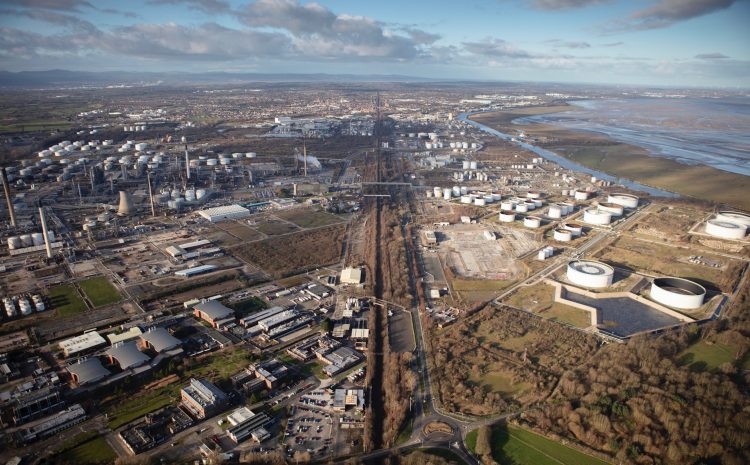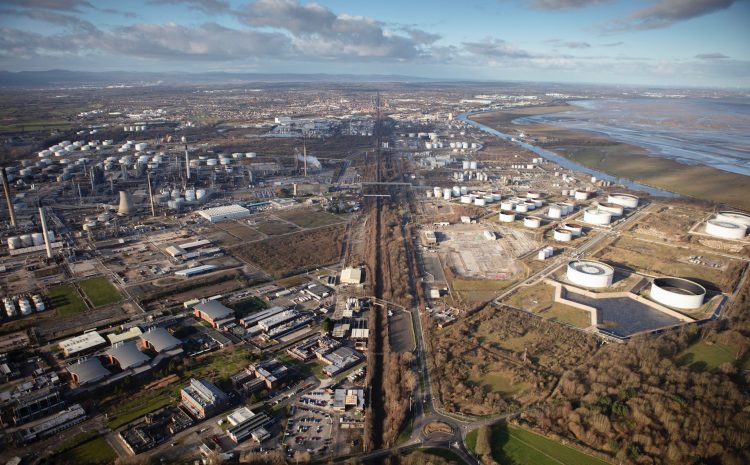A multi-billion pound project to produce ‘low carbon’ hydrogen close to the River Mersey secures supply deals with more than 30 North West companies. Tony McDonough reports

EET Hydrogen has secured deals to supply ‘low carbon’ hydrogen to more than 30 companies across the North West.
Part of the multi-billion pound HyNet consortium, EET Hydrogen is a division of oil giant Essar which operates the huge Stanlow Oil refinery at Ellesmere Port, close to the River Mersey.
Stanlow will be the location of the hydrogen production hub. This will produce hydrogen by burning natural gas but, instead of being released into the atmosphere, the CO2 emissions will be captured and stored in rock under Liverpool Bay.
This is a controversial method of producing hydrogen with critics claiming carbon capture and storage (CCS) is unlikely to work at this scale and will not achieve the 95% capture rate required to meet stringent Government rules.
READ MORE: HyNet hydrogen & CCS… everything you need to know
Due to come on line in 2027, the hydrogen hub is being backed by the Government. In October 2024, the Government offered £22bn to be shared between HyNet and a similar project in the North East of England. This investment will be spread over 25 years.
This week EET said it had secured hydrogen supply agreements with more than 30 North West businesses in the industrial, power, and transport sectors. In recent months alone it had signed 10 new Memoranda of Understanding (MoU) agreements.
Phase one of the project – HPP1 – will see the construction of a hydrogen plant that will have a production capacity of 350MW and will capture around 600,000 tonnes of CO2 a year. HPP2 will follow later and will add a further 700MW of production capacity.
It is claimed 1,000 MW is enough energy to power a city the size of Liverpool, capturing up to 1.8m tonnes of CO2 per year (the equivalent of taking around 700,000 cars off the road).
EET Fuels, owner of the refinery, is building its own parallel hydrogen facility that will help decarbonise the site’s operations.
Marta Csibra, head of strategy and business development at EET Hydrogen, said: “The North West hosts approximately 340,000 industrial jobs supplying vital products and services across the UK, and beyond.
“Industry needs to transition to flourish in a low carbon future and EET Hydrogen is committed to enabling decarbonisation, rather than deindustrialisation.
“The signed MoUs reflect a total demand of ~29 TWh/year, equivalent to a hydrogen production capacity of ~3.3GW, demonstrating the substantial growth and decarbonisation opportunity from hydrogen, within HyNet and beyond.”
This hydrogen produced at Stanlow will be so-called ‘blue hydrogen’ that will be piped to factories across the North West. Blue hydrogen is produced by burning natural gas which emits CO2, a major contributor to climate change.
However, instead of the CO2 being released into the atmosphere it will be captured by a facility at Stanlow. Italian oil producer Eni will build a pipeline to carry the captured CO2 to be stored in porous rock in depleted gas fields under Liverpool Bay.

There remains significant scepticism about the viability of carbon capture and storage. There are some who believe it simply won’t work and that it is simply a ruse to prolong the use of fossil fuels.
Hydrogen is the most abundant element in the universe. Its potential as a clean source of fuel is immense. The snag is it has to be separated from other elements and that is an energy-intensive process, however you do it.
HyNet is also conducting small pilot schemes to produce ‘green hydrogen’. This uses electricity produced from a renewable source, such as wind or solar, which is then fed through a machine called an electrolyzer. This separates the hydrogen atoms out in water.
From a climate change point of view this is the optimal method for producing hydrogen. However, while its development is progressing, it is a long way from being available or affordable at scale. HyNet’s argument is that ‘blue’ is scaleable now.
The post Hydrogen project signs deals to supply 30 companies appeared first on Liverpool Business News.





